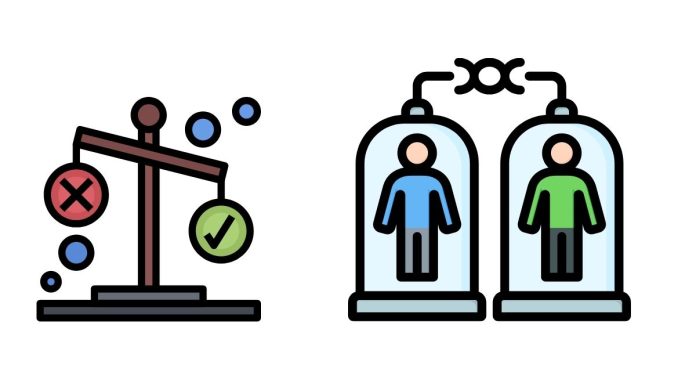Cloning, the process of creating genetically identical copies of an organism, has been a topic of fascination and debate for decades. From advancements in medical research to ethical dilemmas, cloning is both a promising and controversial field of biotechnology. In this blog, we’ll explore the advantages and disadvantages of cloning, highlighting its potential and challenges.
What is Cloning?
Cloning involves creating an organism or cell that is genetically identical to the original. It can occur naturally (e.g., identical twins) or artificially through scientific methods. There are three primary types of cloning:
- Gene Cloning: Copying specific genes or segments of DNA.
- Reproductive Cloning: Creating a new organism, such as Dolly the sheep, the first cloned mammal.
- Therapeutic Cloning: Producing stem cells for medical treatments and research.
Advantages of Cloning
1. Medical Advancements
- Organ Replacement: Cloning can help grow organs for transplantation, reducing donor shortages and the risk of rejection.
- Curing Genetic Diseases: Therapeutic cloning can correct genetic defects by replacing faulty genes or tissues.
2. Agricultural Benefits
- Enhanced Livestock: Farmers can clone animals with desirable traits, such as higher milk production or disease resistance, ensuring better yields.
- Preserving Endangered Species: Cloning offers a way to prevent extinction by replicating animals with declining populations.
3. Scientific Research
- Cloning provides insights into genetic development and diseases, allowing researchers to study biological processes in controlled environments.
4. Infertility Solutions
- Cloning offers hope for individuals or couples unable to conceive naturally, enabling them to have genetically related offspring.
5. Consistency in Quality
- Cloning ensures uniformity in traits, which can be particularly useful in industries like agriculture and pharmaceuticals.
Disadvantages of Cloning
1. Ethical Concerns
- Cloning raises moral and ethical questions about “playing God” and the implications of creating life artificially.
- Reproductive cloning is especially controversial, as it involves creating humans, leading to debates about individuality and identity.
2. Health Risks
- Cloned animals often suffer from health problems, such as organ defects and premature aging.
- Therapeutic cloning processes may lead to unintended mutations or complications.
3. High Costs
- Cloning technologies are expensive, making them inaccessible to many.
- The high failure rate in cloning experiments further increases costs.
4. Loss of Genetic Diversity
- Cloning identical organisms reduces genetic variation, making populations more susceptible to diseases and environmental changes.
5. Potential for Misuse
- Cloning technology could be misused for unethical purposes, such as creating “designer babies” or weaponizing genetic manipulation
Cloning in the Future
Cloning has immense potential to revolutionize medicine, agriculture, and conservation, but it also presents significant ethical and practical challenges. Striking a balance between leveraging its benefits and addressing its drawbacks is essential.
Conclusion
Cloning is a double-edged sword, offering solutions to critical problems while raising profound ethical and societal questions. As the field advances, it is crucial to establish clear regulations and frameworks to ensure that cloning is used responsibly and equitably. By doing so, humanity can unlock the potential of this groundbreaking technology while safeguarding against its risks.


